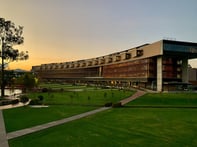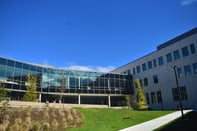Published on
Support Continuing Ed at Community Colleges

Both continuing education and community college exist to help learners get the right workforce skills to get a job as soon as possible, but rarely are the two ever linked together despite their shared strengths in serving workforce needs. In this interview, Kristin Braswell discusses the obstacles that stand between continuing education and community colleges, how these two can work together to serve the workforce and how the regional approach can help bridge this gap.
The EvoLLLution (Evo): What are some of the key obstacles that continuing ed leaders at community colleges face in trying to develop programs and offer support services to non-traditional and non-degree learners?
Kristin Braswell (KB): One of the challenges is offering what the community and our public want. We can come up with the greatest ideas or programs and then not get any participation. We could come up with the greatest program that we feel would get people to work in the shortest amount of time, give them the skill sets they need to obtain a sustainable job that can help them take care of their families. And then there’s no interest, especially when we’re trying to reach low-poverty areas. There’s a community center right there in the middle of a neighborhood in my county, where we try out various programs, and they give us feedback. We then try to develop programs out based upon the feedback, but they still don’t show up. So, one of the biggest obstacles was having the funds to support various new programs and implement them, but then also having the community back us up and enroll in the programs that we do produce.
Evo: The mission of a community college in general is to create access for underserved demographics to create pathways to socioeconomic mobility—is that heightened in the continuing ed part of the college?
KB: Workforce is a hot subject, especially in dealing with COVID. People are trading jobs for actual careers now. People are interested far more than they were before. So yes, I think a lot of people do depend upon us, and we’re grateful for that. But then, there are also some very expensive programs that we would like to offer, but we just do not have the financing to do it.
And we have some local employers who, within three to four years, will lose 30 to 40% of their employees to retirement. We want to be able to train people to fill that gap for the company. But on the flip side, that is a very expensive program for us to get up and get going. Although employers have told us what their needs are and will be, we want to be able to provide them help with that need. But our hands are tied by not necessarily having the funds to be able to produce that sort of program.
Evo: What kind of role do organizations like NCCET play in supporting the growth of continuing ed at community colleges?
KB: It trains our faculty and staff members to think creatively and find available resources to develop new programs that our community partners may need or want. They provide webinars, and eventually, they’ll be moving to some certifications. That’s the one thing that’s been missing within the continued education workforce area in the past–we’ve never had any cybersecurity certification. But we’re slowly starting to see that change because our faculty members are just as equipped and educated on that side. Our faculty should be held to the same levels as curriculum faculty. And the salaries should be the same across the board.
Evo: How can the regional approach that NCCET’s starting to launch help to support the work to bridge the gap between what we want continuing ed at community colleges to be and where it is right now?
KB: I liked the regional approach because, from my understanding, I will also be able to select managers to help me oversee my region, letting our community members know that we’re here for them, the organization is here for them. We’re here to support you, your efforts and your training. The door is always open.
Right now, I’m dean of off-campus programs, so I’m working on both sides of the fence now: curriculum and workforce and continuing ed. In speaking with colleagues, they’ve noticed that there is a lack in connection between the two sides. What I’m trying to do is encourage everyone to get as much professional development and as many certifications as they can. This way, you’ll always have some quality training with you, no matter the field.
Evo: As you pioneer this regional approach, do you expect to see more collaboration between the various colleges across the mid-Atlantic region, or are you foreseeing more opportunities to compete?
KB: I see it more as a collaboration. Each of us serves a different population– and I know as far as the state of North Carolina, we can’t go out of our service area–so we can’t really compete with someone in a different area. We can’t advertise outside of our service area, so there wouldn’t be any competition between institutions. That’s why I’m really excited about this regional approach–it’s going to give us an opportunity to collaborate more. I’m ready to see how it works because I also serve on another national board, the National Association for Workforce Development Professionals, and if this approach works, I would love to share this with them. I’d then love to see this at a state level.
Evo: What are some of your early and long-term goals for the mid-Atlantic region?
KB: Definitely a first meeting. Unfortunately, we can’t meet in person–not anytime soon-but definitely setting up a virtual meeting with all of the institutions within our region, introducing myself to them, letting them get to know me, what I’m about and my vision for our area, and then giving them other opportunities to meet each other. That’s going to be one of the first things that I do and then figure out how we can do it quarterly.
Evo: Is there anything you’d like to add about the shift towards regionality for NCCET and how you expect it to help continuing ed providers at community colleges in your area?
KB: I’ve been in continuing education workforce development for 19 years in various positions but all under this umbrella of continuing education and workforce development. I see a shift in us right now–employees, faculty and staff members. This organization can support us in shifting into a more positive direction where we can be more respected by our colleagues on the curriculum side of the house.
This interview was edited for length and clarity.
Disclaimer: Embedded links in articles don’t represent author endorsement, but aim to provide readers with additional context and service.
Author Perspective: Administrator



